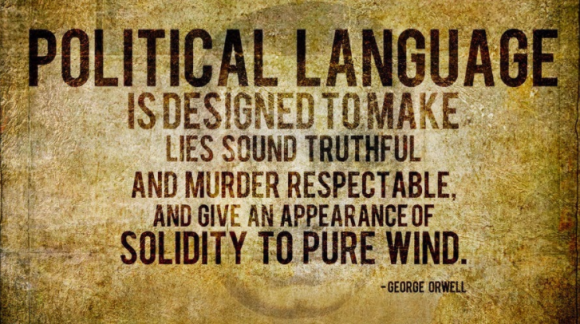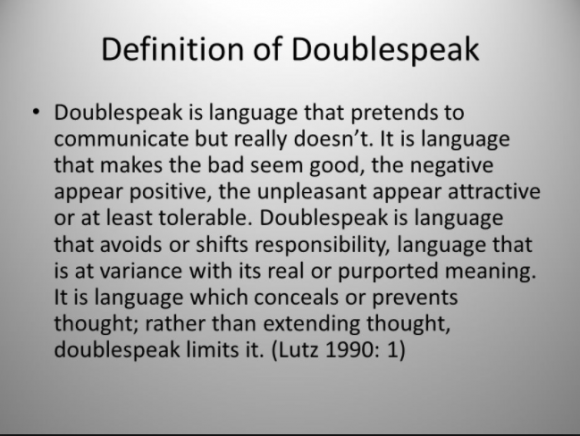 aNewDomain — A few years ago, a prevalent conversation in politics was about moral relativism. People with a particular political leaning were concerned with the moral relativism of the other team, citing unambiguous moral texts as their guiding principles.
aNewDomain — A few years ago, a prevalent conversation in politics was about moral relativism. People with a particular political leaning were concerned with the moral relativism of the other team, citing unambiguous moral texts as their guiding principles.
These days, as media become confused and facts replaced with alternative facts, we have to face an uncomfortable truth: we didn’t stand for our principles. None of us stood for them. All the arguments to hypocrisy by each side contained this nugget of truth: we were all hypocrites.
Democrats lampoon Donald Trump with the basest of language. “Fuck Trump” is heard all over the webs thousands of times a day. “Not my President,” “The Cheeto in Chief,” “Short Fingered Vulgarian” … the list goes on and on.
All this name-calling is opposite to such liberal principles as free discussion and respectful dialogue.
 The red team is right: Bill Clinton was a racist and he was a sexist and he was a liar. “You’ve got to stick to your lie” is a phrase we used frequently in the 90’s and it was born of the Clinton investigations.
The red team is right: Bill Clinton was a racist and he was a sexist and he was a liar. “You’ve got to stick to your lie” is a phrase we used frequently in the 90’s and it was born of the Clinton investigations.
Red team politics have gotten very ugly and the truth and central principles have been sacrificed, as they always are, in favor of winning. Team membership requires ugly action sometimes.
Whichever team you are on, you can count on your core principles moving based on what your team thinks, rather than on a strict set of personal rules you wish to follow. Guiding principles are always secondary to affiliation. And we can be manipulated pretty easily based on those affiliations.
An example that troubles me right now is the Obamacare/ACA discrepancy.
The red team says they are doing the work of the people in dismantling the ACA. People seem to dislike that bit of legislation when you call it Obamacare but like it when you spell out the provisions of the law.
The discrepancy here is that politicians and their media outlets worked very hard to make people dislike the law. People who enjoy the protections of the ACA are against it because their party told them to be against it.
 This kind of slippery principle isn’t new. Both sides do it. Politics require we be manipulated in this manner.
This kind of slippery principle isn’t new. Both sides do it. Politics require we be manipulated in this manner.
So how can you protect yourself from ending up with absurdly contradictory principles in your mind? Pro-life, pro-death penalty or pro-choice, anti-gun, either way you’ve got to do some equivocation.
I want you to do something right now. I’ve never asked you to do something before and probably won’t ever again. But do this one thing.
Take out a sheet of paper and a pen. Something that can be permanent that you can stick up on a wall someplace. Write on that paper all the lines you will not cross, all the principles you want to live by. Be specific. “The Bible” or “The Constitution” or “The Liberal Agenda” or whatever can be interpreted to mean anything you want them to, as evidenced by liberals taunting Trump supporters and bitching out perfectly nice working-class folks at Starbucks and by people saying they believe in the Ten Commandments and the death penalty at the same time.
Be specific. What lines will you not cross, not ever?
I will not kill another human, for example.
I can feel you resisting me.
You’re mad. We’re all mad – hell, even the folks who won are mad.
I can imagine you thinkng “I will never vote Republican” or “Democrat” or whatever. But those aren’t really great principles. Those are the things that change over time. You can get suckered into voting into some very sick things or very sick people by sticking to affiliation over reason and principle.
So what will you stand for?
What would you die for?
What lines will you never cross?
They’re yours.
Put them up someplace where you can see them.
Now you’re protected against doublespeak and cognitive dissonance, at least for a little while.
You can look at your list and decide day by day whether you are living up to it.
When your thoughts start to creep off track, you can change your list, if you do it thoughtfully.
Maybe some new evidence emerged and you have to change your mind. But it will be harder for you to just forget what you believed in, to assume you’ve always believed the things you do now.
It’s just one little thing you can use to protect yourself.
For aNewDomain, I’m Jason Dias.
Images: Grammar.About.Com, All Rights Reserved; ActivistPost.com, All Rights Reserved; slideplayer.com, All Rights Reserved













